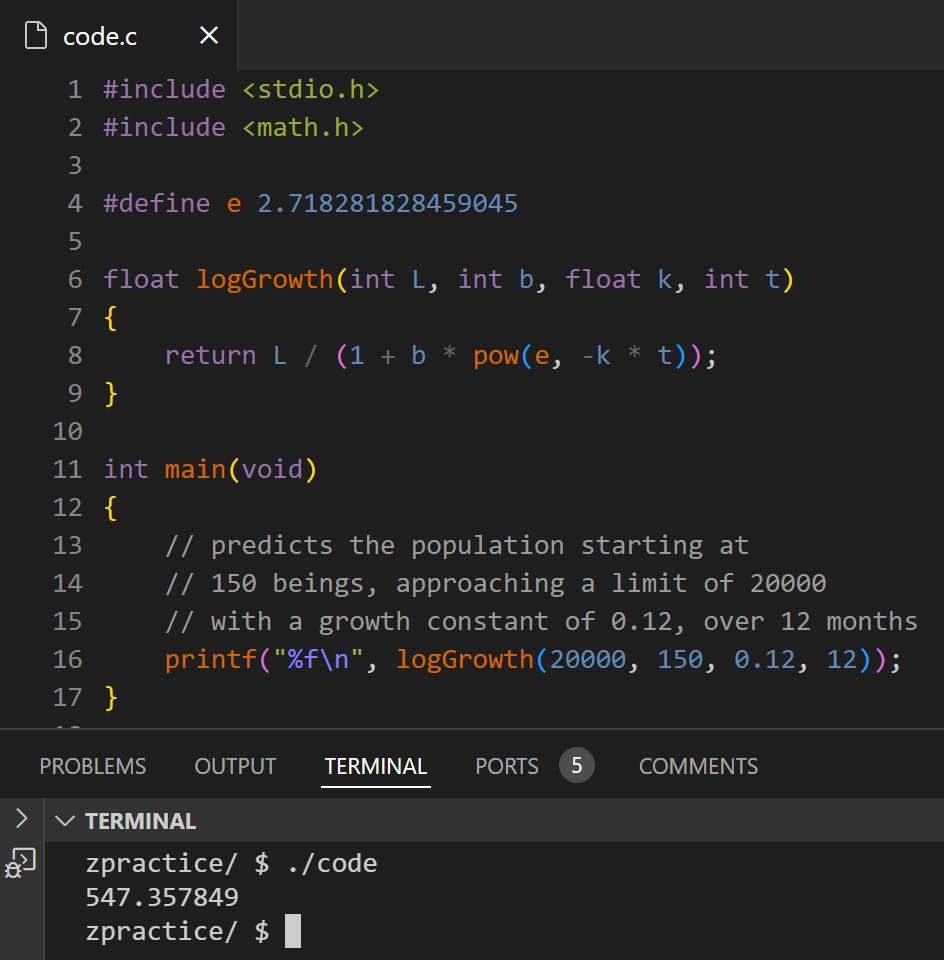Introduction
Say you're designing an online shopping app that allows a visitor to purchase up to 152 items at a time.
Or maybe you're creating some mathematical algorithm that predicts the logistic growth of a population using the constant e or 2.718281828459045…
P(t) = L / (1 + be⁻ᵏᵗ)Wouldn't it be nice to store these independent, and seemingly random, values in one aptly-named place?
Perhaps the option we're most accustomed to use a variable. However, using magic numbers is another potential solution that has its own merits.
What are Magic Numbers?
preprocessor directive / macro
helps with creating symbolic constants
processes code before compilation
syntax for creating a "magic number"
#define NAME VALUE
#define MAX_PURCHASES 152In this case, MAX_PURCHASES is the name and 152 is the value. So now, whenever you use MAX_PURCHASES in your code, it will get automatically treated as 152.
Wait a minute... isn't that what global variables do?
The difference here is that magic numbers are processed before the code compiles, meaning that all it effectively does is finds all instances of the magic number name in your code and replaces them with the assigned value before runtime. The advantage to this is that it takes up no memory space, unlike variables.
Further, magic numbers cannot be accidently modified (e.g. MAX_PURCHASES++ does not change the value to 153 because it is nothing more than a number in disguise).
Naming Convention
magic number names are almost always capitalized
differentiates them easily from variables
makes the code more readable
exceptions can be made:
#define e 2.718281828459045
here, you could argue that e is more easily recognized and readable in its lowercase form
doesn't require type declaration
can be an int, float, string (" "), etc.
#define vs. const
While the value of a const cannot be changed like a #define, there are a couple of advantages and disadvantages to both:
Final Thoughts
In summary, if you ever have a seemingly arbitrary constant lurking within your program, consider using a magic number (or string!) for better design and efficiency.
Thanks for reading!

Comments